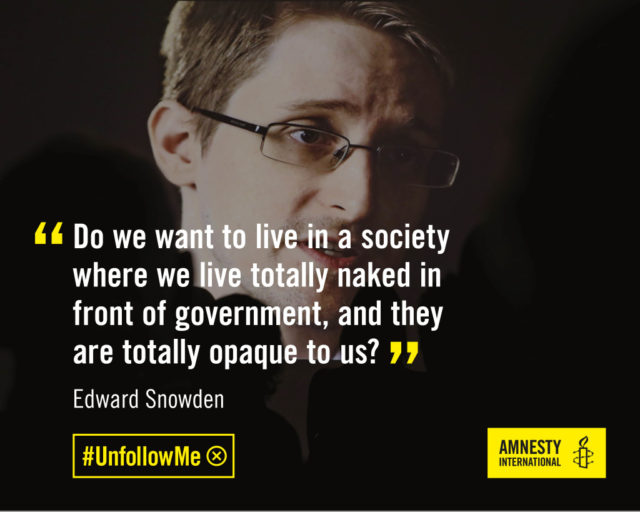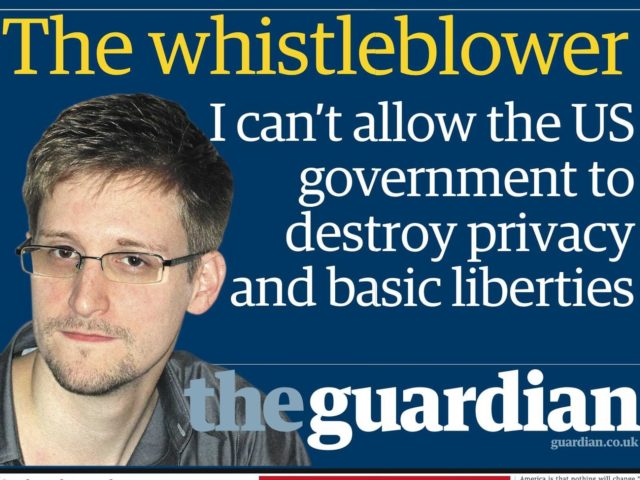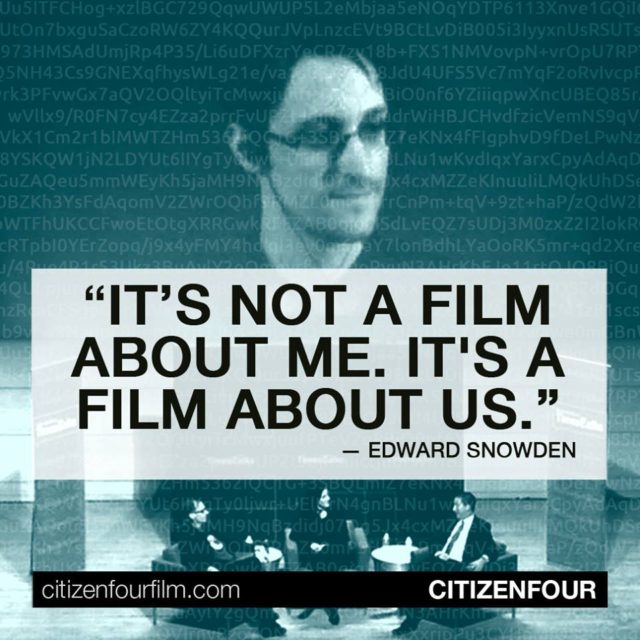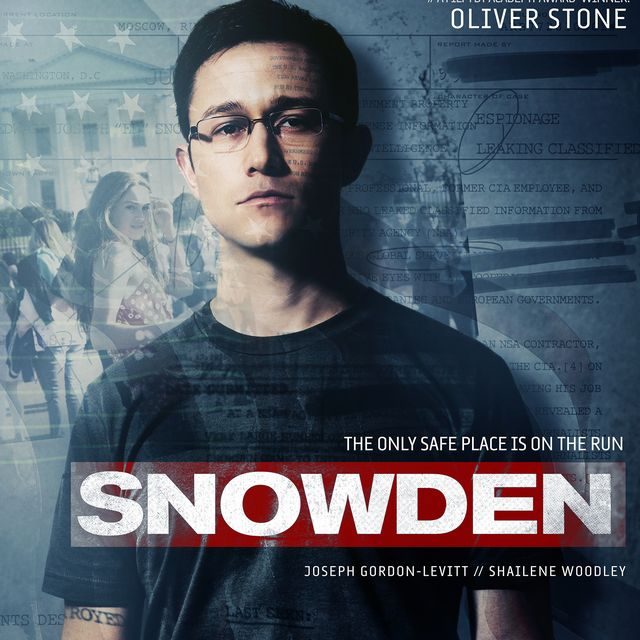By Spencer Lucas
Rarely are news stories so compelling that they make the leap from front page headlines to the forefront of public imagination. Edward Snowden, the former American CIA employee responsible for leaking thousands of secret government documents, has become an international celebrity and worldwide symbol for cyber-activism. As a dramatic figure and media superstar he has drawn attention to the fight for Internet freedom, igniting debates surrounding mass surveillance and modern digital threats to personal privacy.
While working as a CIA employee in the early 2000’s, Snowden developed skills which would ultimately enable him to release “millions” of files documenting the existence and functions of classified American surveillance programs.
In 2012, while working at Dell, Snowden first made contact with Glenn Greenwald, a journalist working at The Guardian. On March 15, 2013, just three days after what he would later refer to as his “breaking point” of “seeing the Director of National Intelligence, James Clapper, directly lie under oath to Congress”, Snowden left his job. He then accepted a position with NSA contractor Booz Allen Hamilton, because it “granted access to lists of machines all over the world the NSA hacked.” In May 2013 he flew to Hong Kong – where he would set the most famous “whistleblowing” case in global history into motion.
“I don’t want to live in a world where everything that I say, everything I do, everyone I talk to, every expression of creativity or love or friendship is recorded”, Snowden said of his motivation to “blow the whistle” on American surveillance activities. It was his respect for free, private communication which drove his decision to disclose information regarding specific government programs.
However, he knew as well that these same newspapers, news stations, and websites would be characterising him and branding him as either a “hero” or a “traitor” to the very public he hoped to engage in an intelligent debate. This knowledge led Snowden to very carefully orchestrate the way in which he came forth with his information. He selected documentary artist Laura Poitras – a woman once placed on the Homeland Security “watch list” for her controversial work – with Greenwald to bring his case to light.
Immediately the conversation surrounding Snowden became a political firestorm. He had shown the world that the United States was deeply scanning the entire Internet for potential “terror” activity. To privacy advocates, this made him a hero. To folks attached to the security apparatus, Snowden was seen as a traitor. In the years since Snowden has carved out a niche as a commenter on security and technology affairs from his hideout in Russia. Just as Nixon-era America watched the story of Woodward and Bernstein go from the news to the big screen, this generation has seen the same thing happen with Snowden.
In 2014, Poitras’s film Citizenfour was finally released. The film would go on to win an Oscar for Best Documentary in 2015. After watching it you will never think of online security the same way again.
Citizenfour closely follows the efforts of Poitras and Glenn Greenwald as they meet with Snowden during his time in Hong Kong and get the full story. It makes extensive use of video footage from the journalists, revealing Snowden at his most vulnerable moments. The documentary is largely credited to Poitras and it offers a compelling first-hand look at the challenges faced by both “whistleblowers” and news writers when they attempt to uncover government wrongdoing. Citizenfour is widely considered the most in-depth documentary to ever emerge on the subject.
Still, it seemed inevitable that a story like Snowden’s would find its way beyond documentary circles. Now expected to appear in theatres in September 2016, Oliver Stone’s “spy” thriller Snowden is the first big-budget attempt to fictionalize the life of Edward Snowden. As a director, Stone has an established reputation as someone who can tell a conspiracy tale with a sense of the compassion for the players involved, and the Snowden film is (according to those who’ve seen early screenings) an excellent primer for anyone who wants a glimpse into the famous whistleblower’s mind.
The emergence of the security state in the early part of the 21st Century is one of the biggest stories of our time. Every day the number of individuals worldwide with Internet access grows, and regardless of whether they’re connecting via a computer or a smartphone, all their digital movements will be tracked, analysed and stored for potential future use. The capacity of major world governments to access those devices and get sensitive information is a scary thing to contemplate.
Edward Snowden’s reputation in the larger cultural context has improved with the passing of time. While it’s still unlikely he’ll be able to make a swift return to the U.S. anytime soon, he has increasingly been depicted as a hero for the actions he took to expose the NSA’s activities. As his story as a champion of free speech continues to develop, moving from the pages of the newspaper to Hollywood, Snowden will continue to inspire others to challenge the new rules of digital society.
Image Credits: Google
Spencer Lucas is a freelance writer and blogger based in the Midwestern United States. Currently a Chicago resident, he plans on attending graduate school in the fall to study Urban Planning. Spencer’s favourite food is pistachio ice cream.
You will also like to read:
http://edtimes.in/2016/06/world-wide-web-deep-web-dark-net-ed-poster-series/






































